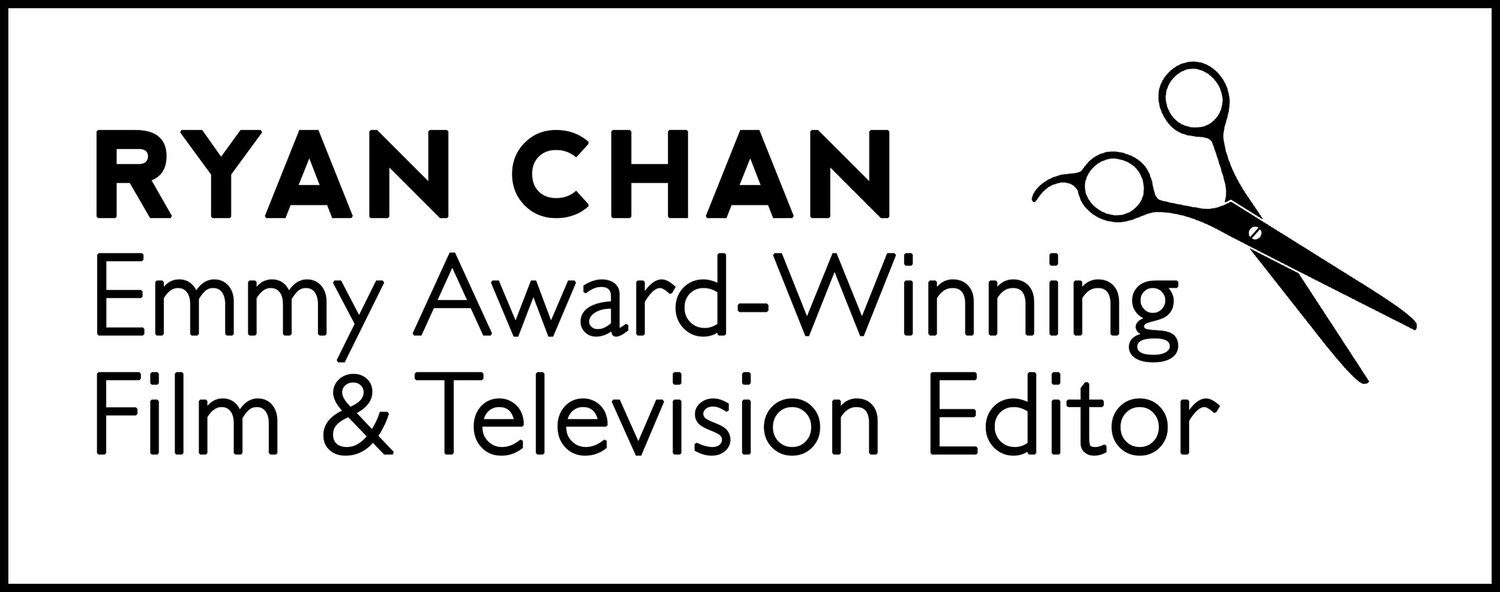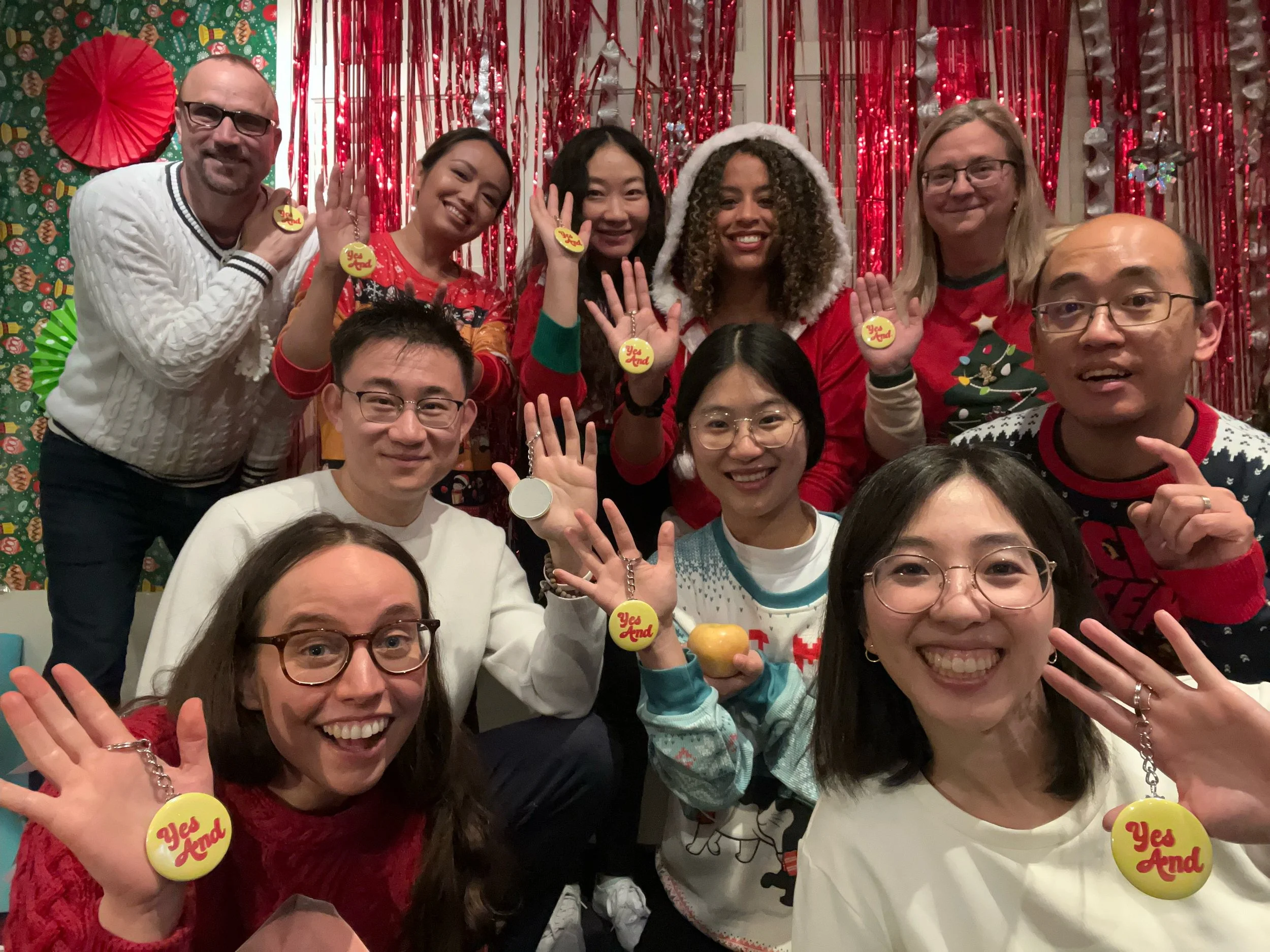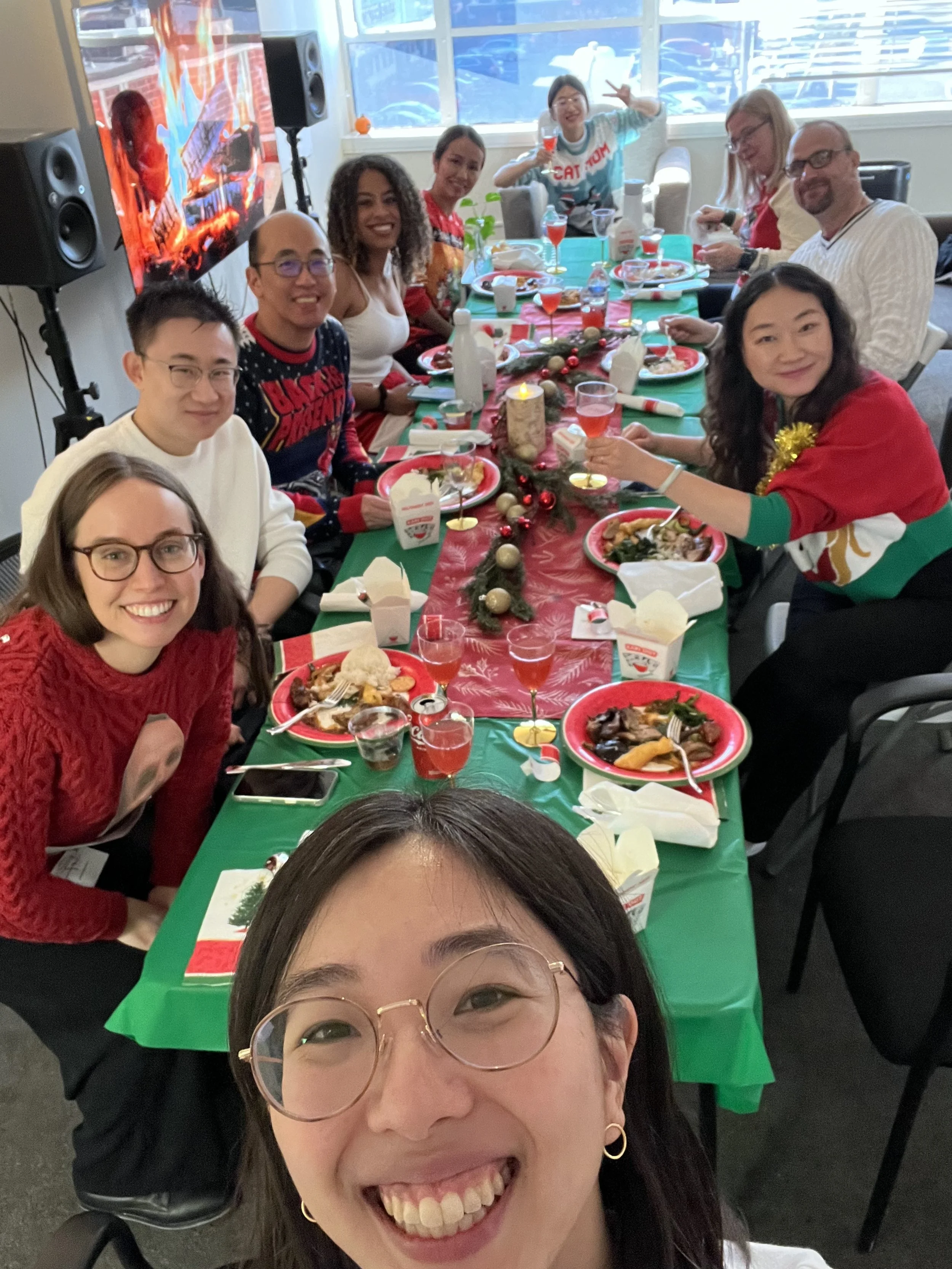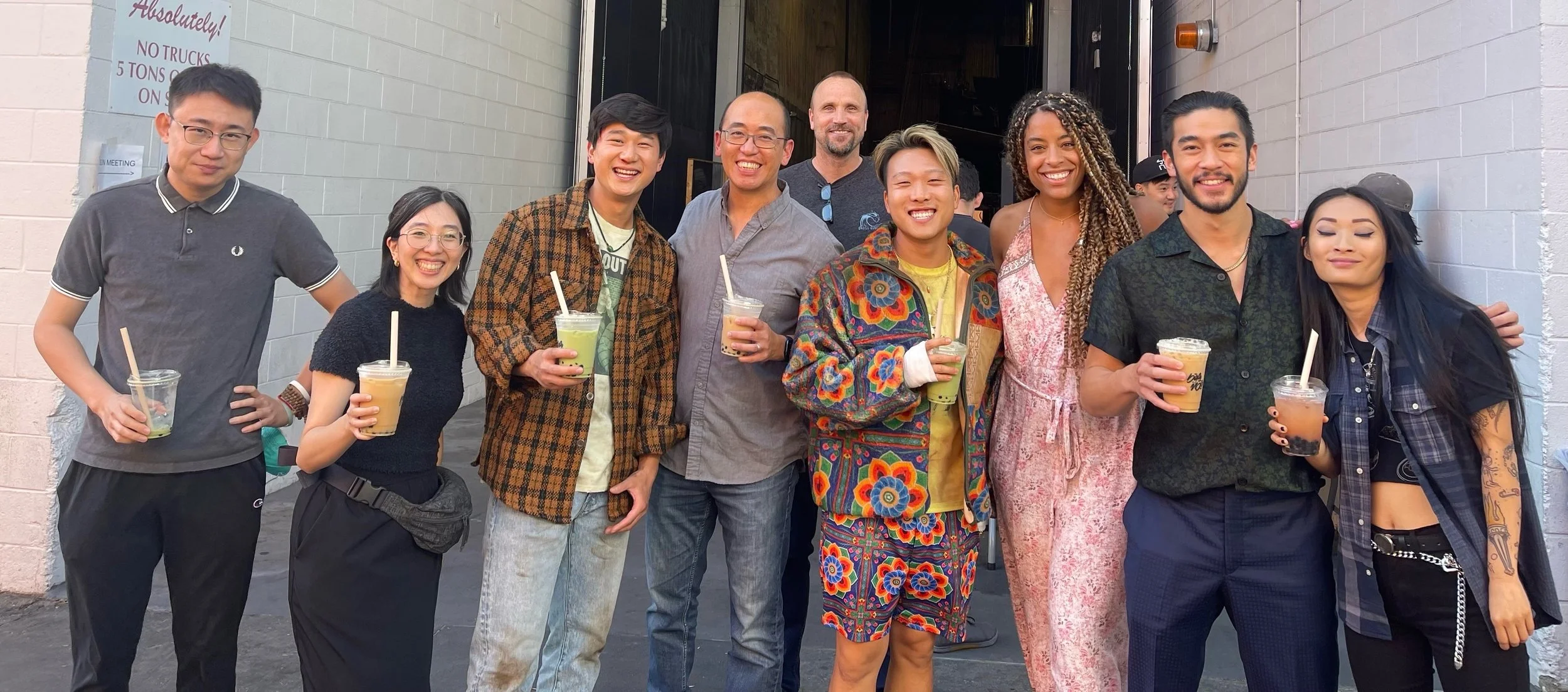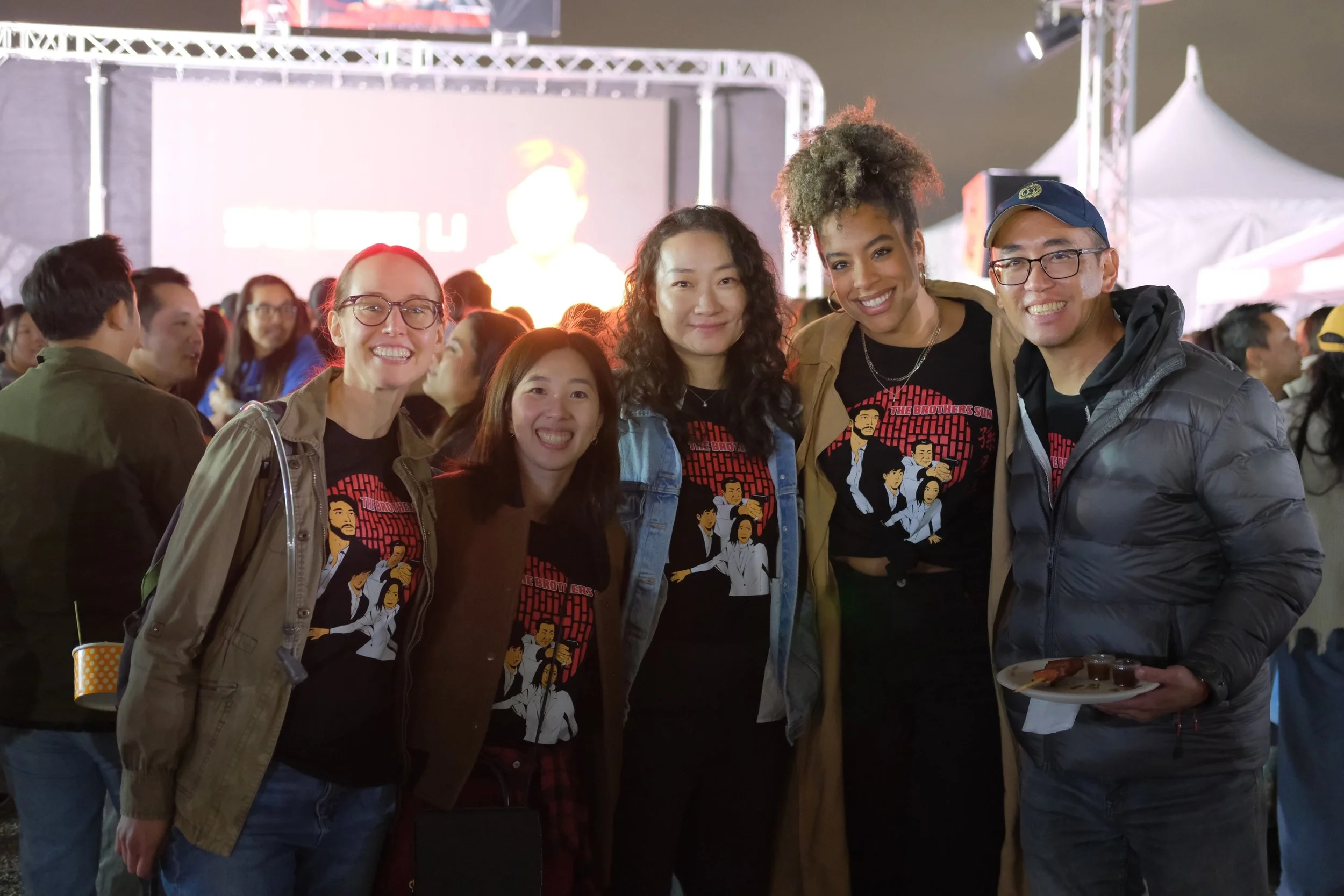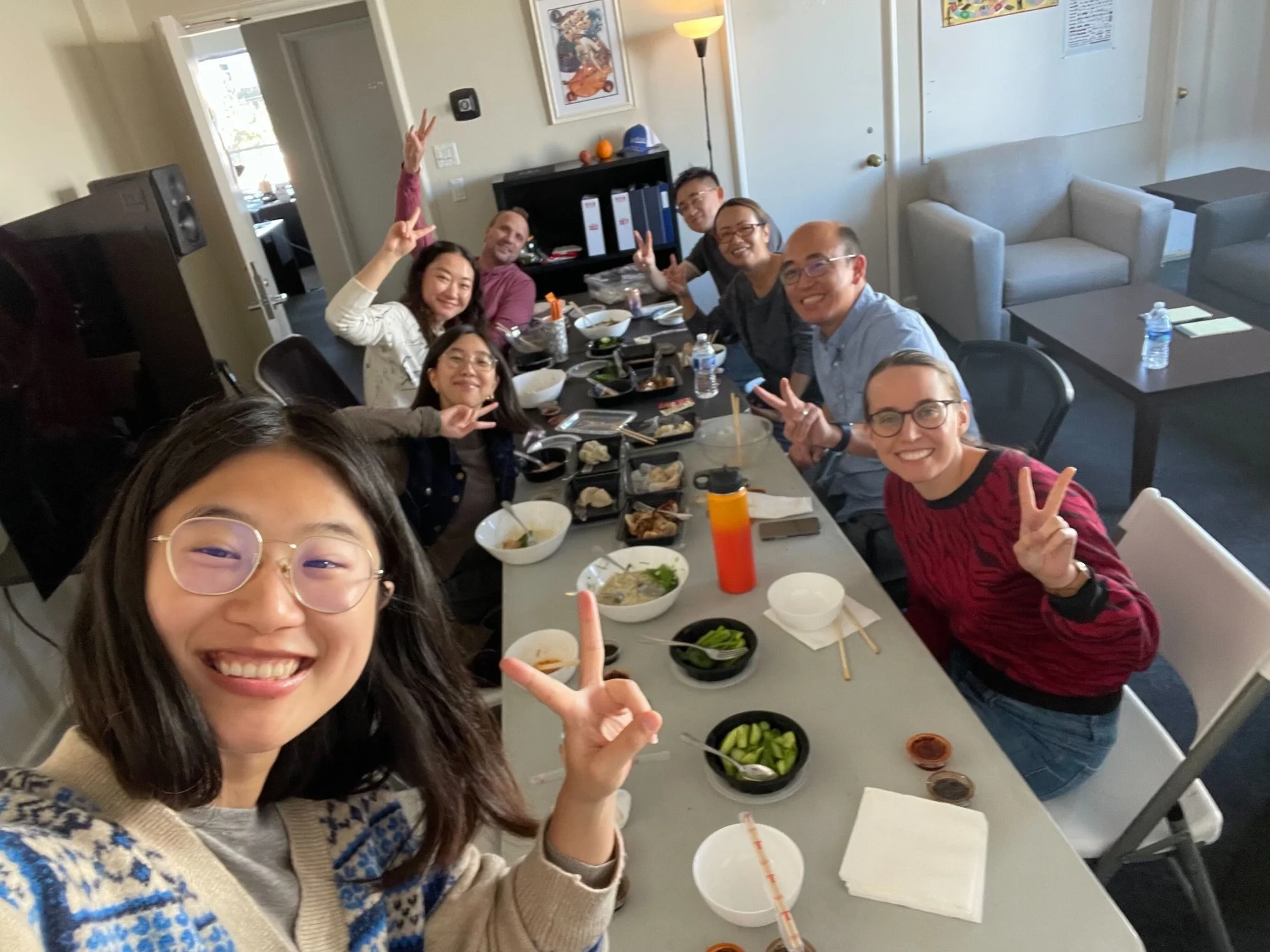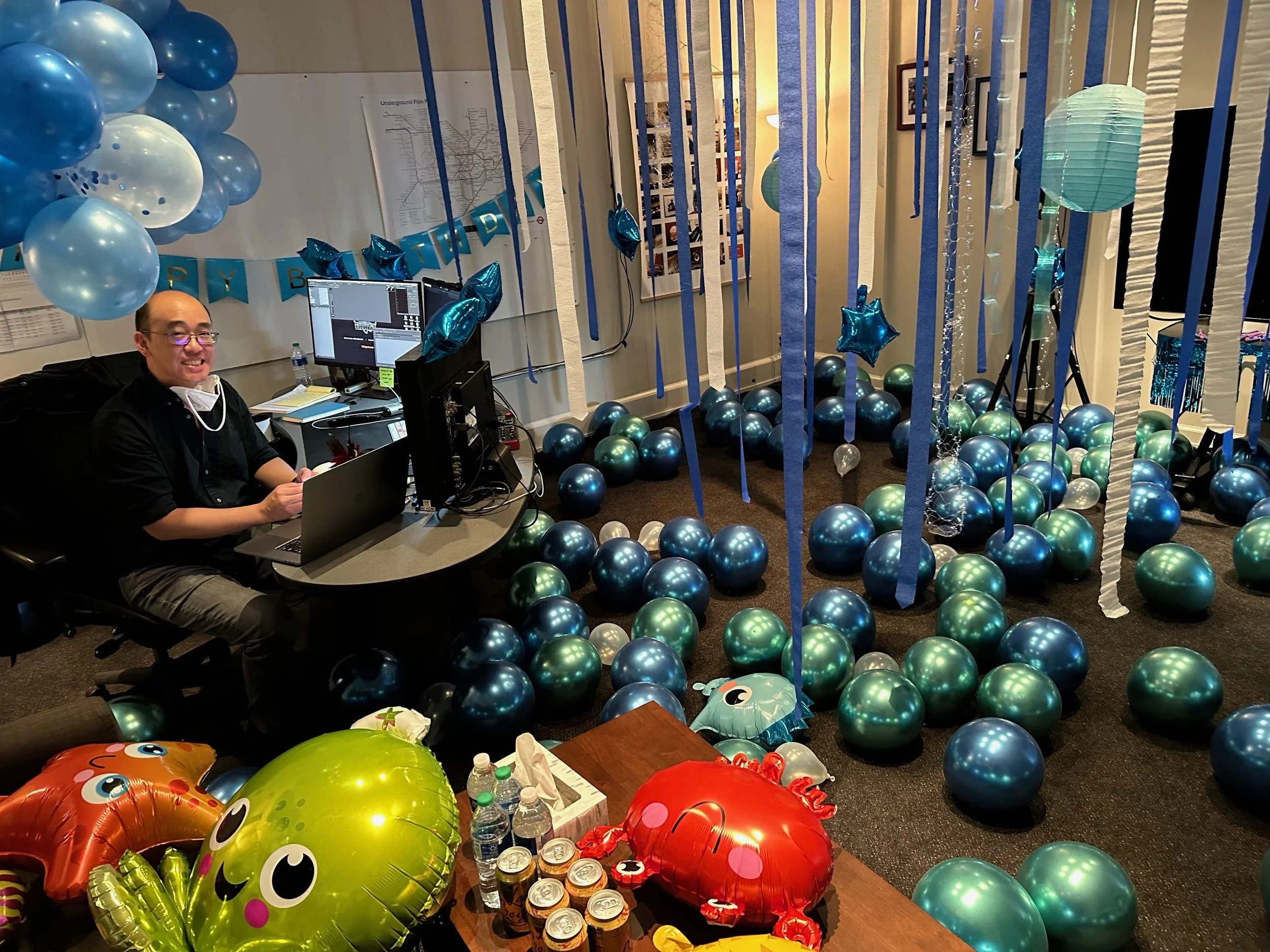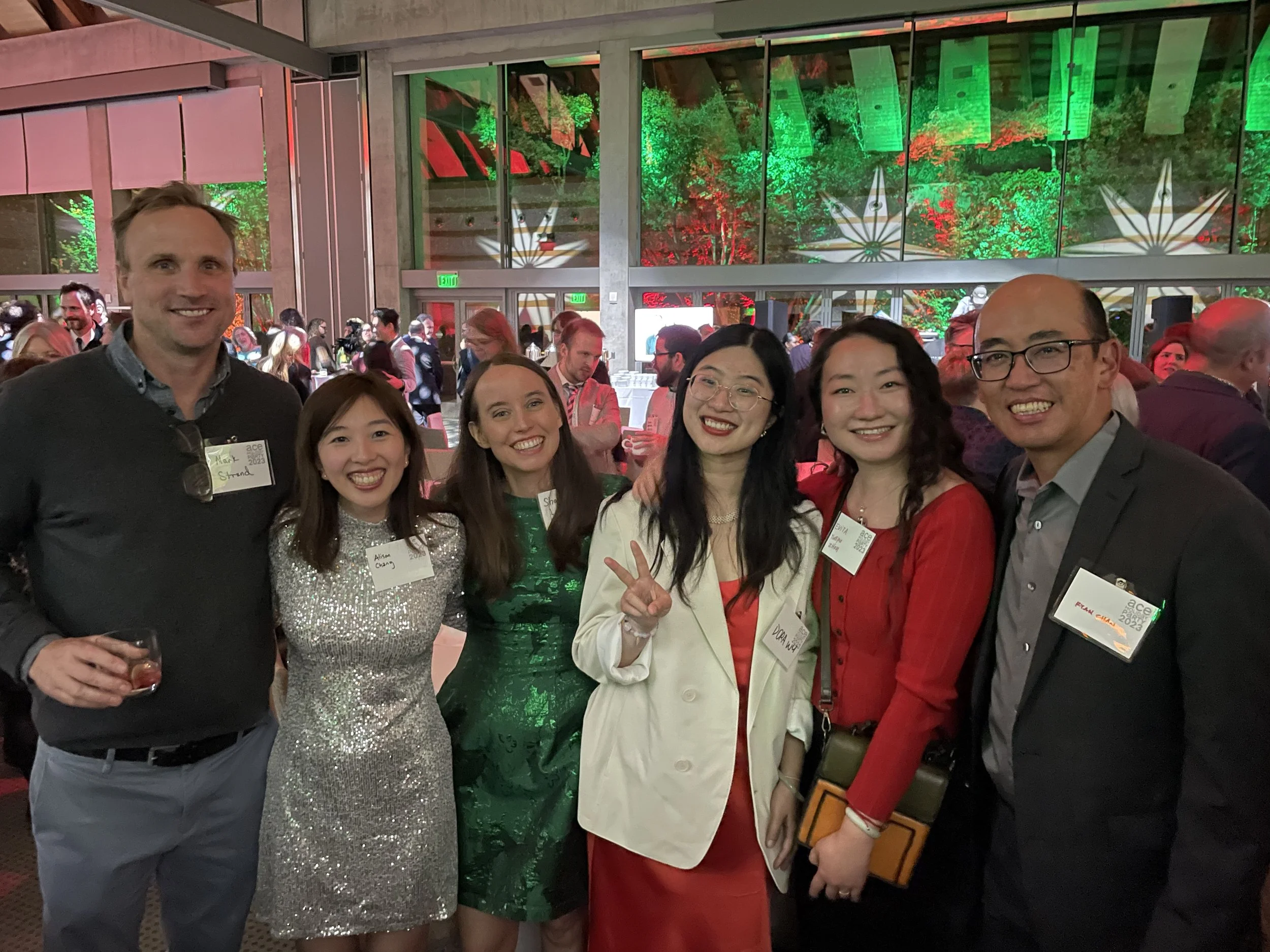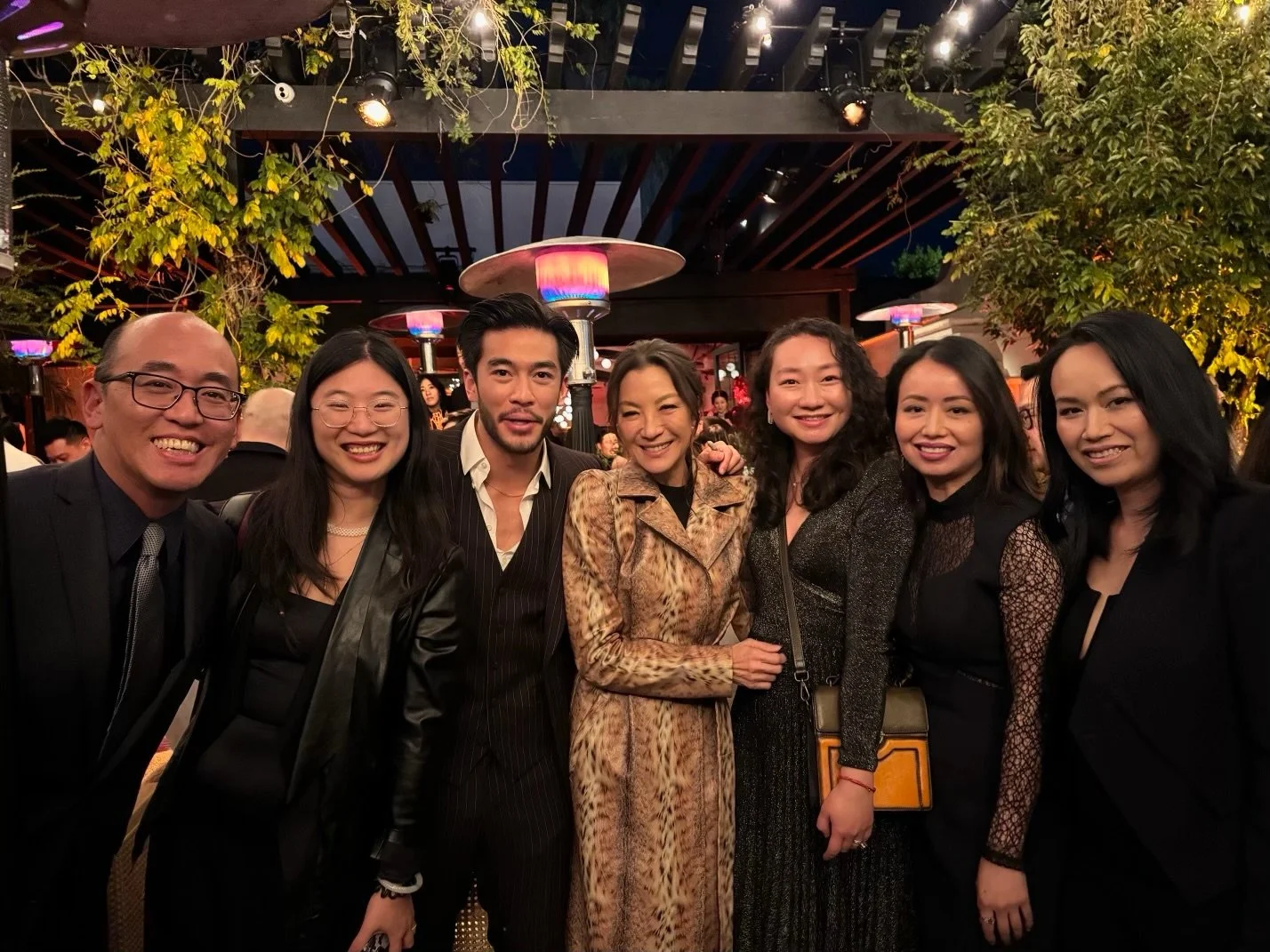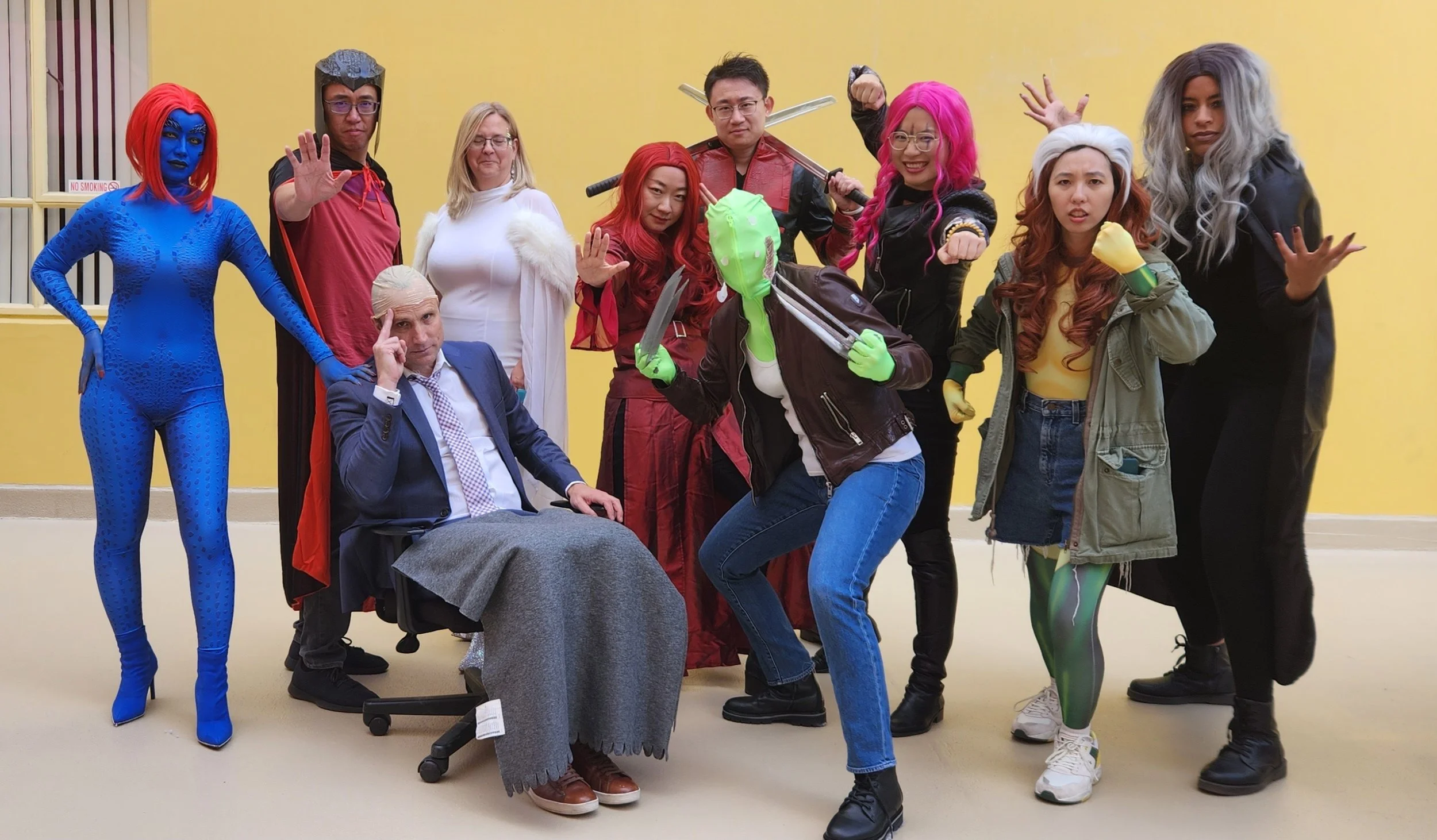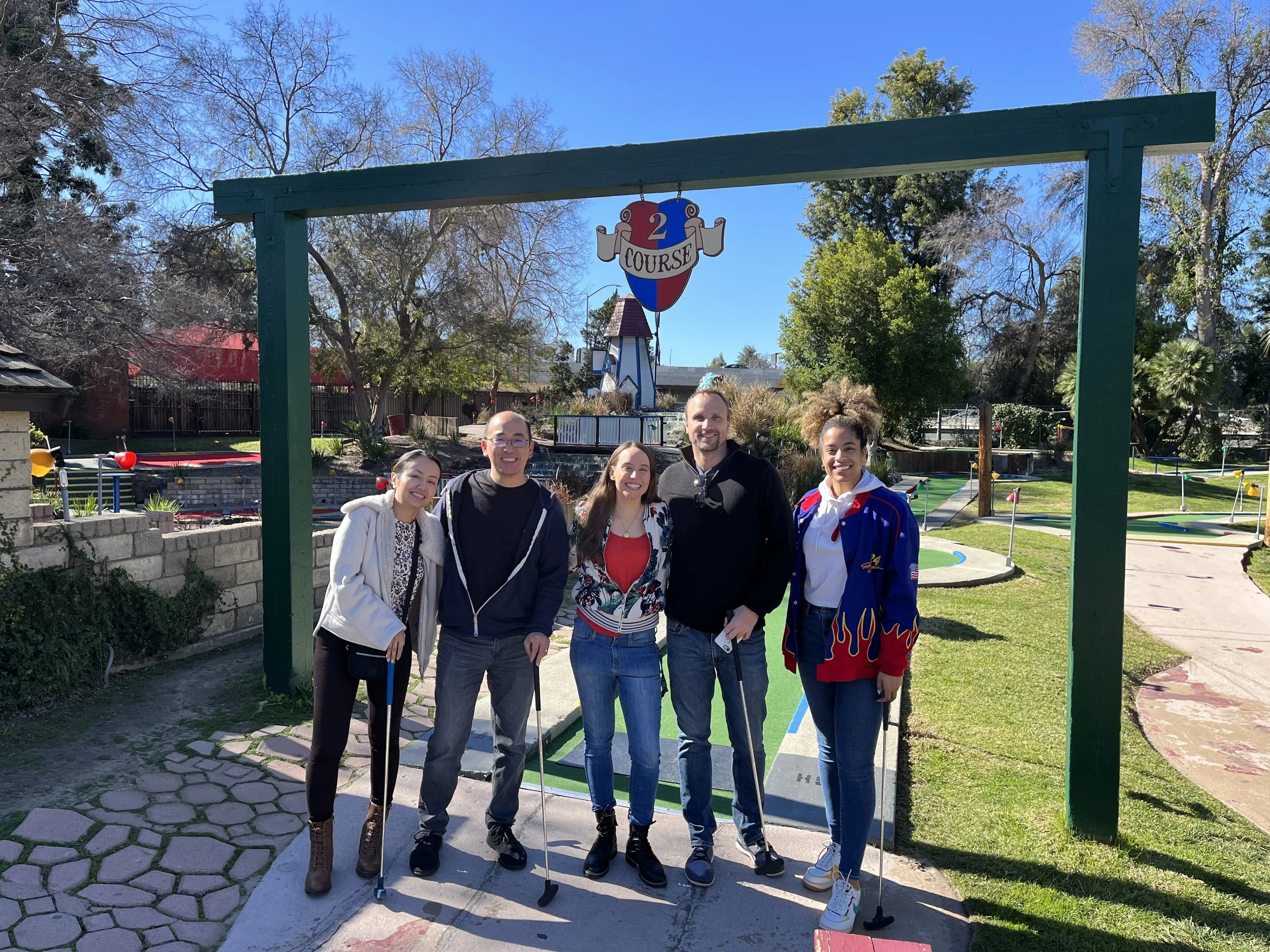“In the sky, there is no distinction of east and west; people create distinctions out of their own minds and then believe them to be true.”
-Gautama Buddha
When easterners and westerners are brought together to collaborate, can they overcome the differences they’ve each built up in their minds? The Post-Production crew of Netflix’ new series The Brothers Sun found out the answer when six of us from the west side of Los Angeles and four from the east side were asked to make the long trek to Sunset-Gower Studios in the heart of Hollywood. With some of us having to cross the 405 and others navigating the Cahuenga Pass, would we be able to find common ground?
Of course, the length and direction our daily commutes were insignificant compared to what actually made The Brothers Sun an extremely rare and special collaboration: we were a collection of crew members from around the globe, in both heritage and geography.
Mark Strand, one of three editors on the crew, was born and raised near Boston, Massachusetts. Ryan Chan’s parents were born in China and Hong Kong, but he was raised in Central California. And our third editor, Evita Yuepu Zhou, grew up in Shanghai.
Our amazing crew of assistant editors come from backgrounds just as varied. Shannon Lynch hails from Virginia. Alison Chang was raised in Texas but her parents grew up in Taiwan. Rebecca Sherwood was born and raised in Michigan, and Dora Wu was born in Hunan, China.
Strand noticed that in casting a wide net to assemble our culturally-diverse crew, the Producers ended up drawing from Editors with wide-ranging professional backgrounds. Strand has had a more traditional television editing background, having cut on Shameless and Nip/Tuck; he also pulled both editing and directing duties on Animal Kingdom. Chan has worked almost exclusively in feature films, having edited on three Robert Zemeckis films: Welcome to Marwen, Roald Dahl’s The Witches, and 2024’s Here. And Zhou comes from the unscripted world, having edited numerous documentaries including Wuhan Wuhan and Confucian Dream. Strand commented, “Though our episodes were stylistically unified by the end, the varying editing styles brought different textures to our episodes, and each editing team ended up being influenced by what they were seeing coming out of the other edit bays.”
The Brothers Sun is about two Taiwanese brothers whose lives are turned upside-down when their family is thrust into the middle of a triad gang war. One of the brothers, Bruce (Sam Song Li), is a college student living in Los Angeles with their mother (Michelle Yeoh). The other brother, Charles (Justin Chien), is a trained killer living in Taiwan with their father (Johnny Kou). When an assassination attempt is made, Charles leaps into action, traveling to the United States to protect the rest of the family. The unbreakable bond of family is a strong theme that runs through the series.
Shooting began in June 2022 on the Sunset-Gower lot, and everyone on the Post-Production crew worked in-office. With most of us coming off of shows that were fully remote, our first day was filled with hugs, handshakes, and questions as we quickly got to know our new crew. We were all thrilled to find out that The Brothers Sun would be shot almost entirely in and around Los Angeles, which put Editorial in the center of the action. Many of the locations used in the show were in parts of the city that are well-known to Southern California’s Asian-American community, but are seldom seen on-screen: Koreatown, Alhambra, Santa Anita, and Monterey Park all play important roles in the story.
Cutting on the lot, while initially proposed for the Producers’ convenience, ended up being a fantastic way to connect Post to the Production team. With numerous complicated action scenes in the series, the close proximity allowed our team direct access to the Directors, Producers, Visual Effects team, and Stunts team to discuss the intended choreography and shooting.
With most of the crew having worked for the two years prior to The Brothers Sun on remote projects, we were reminded that in-person work provides a more natural opportunity for direct mentorship in the editing room. Conversation flowed more readily, and observing in-person how an editor operates and commands a room is something that feels unmatched in a digital environment. “As an assistant editor, it is great to be able to pop into another assistant editor's office to ask a question or observe their workflow,” noted Lynch. “There are so many things I learn unexpectedly while observing another person working that I would never pick up on without seeing their Avid screen and observing their keystrokes and shortcuts.”
From the day we met, the entire crew embraced the differences in our backgrounds and looked at this project as a unique opportunity to learn about each other through food, tradition, and language. The easiest place to see that this was not your garden variety editorial office was the kitchen. In the Brothers Sun cutting room, the fridge was stocked with cans of La Croix next to aloe jelly drinks, and it was just as common to see a bag of shrimp chips in the cupboard as it was to find a bag of Doritos. On this show, we didn’t do coffee runs; instead, our Post-Production Assistant Molin Liu grabbed boba tea for the crew as often as our Post-Production Producer would allow.
Strand was one of the first to suggest activities that would help us learn about each other and improve the show at the same time. The traditional Chinese game of mahjong plays a big role in The Brothers Sun, so Strand bought a mahjong set and hosted games in his office after-hours; Zhou would often call her father in China to clear up disputes over the rules. Strand further cemented east/west relations in the office by buying a poker set for Liu and helping him learn that quintessentially American game. Secretly decorating each others’ rooms at night, impromptu scavenger hunts, games of “where’s my water bottle?” and spontaneous Nerf gun battles were just a few of the reasons that this team learned to love being in the office together.
The fact that strong bonds were created in the cutting room doesn’t mean that making The Brothers Sun was without its challenges. Scenes in the show feature multiple languages and dialects, and it was important to have crew members that could translate, write subtitles, and script the dialogue for the editors. In one editor-assistant editor duo, both spoke Mandarin, in another only one was fluent, and in another neither member came into the project with any experience with Chinese dialects.
Zhou and Wu, who are native Mandarin speakers, not only utilized their language skills on their own episodes, but also lent their ears to help out the other episodes. “Inspired by the TV show Firefly, I took it upon myself to make sure that the Chinese spoken by the characters was correct,” Wu shared. “As both Evita and I were born in China, we have a unique advantage in this regard. It's a fun and fulfilling responsibility to identify whether or not the Chinese dialogue makes sense and is accurately portrayed.“
Chan, who doesn’t speak Chinese, was thrilled to find an Assistant Editor that, in addition to her ability to speak Mandarin and Cantonese, had taught herself to read and write Korean during COVID. Her experience with all three languages proved invaluable. “Alison’s method of breaking down and marking individual sentences with markers and also in the script made it easy to put the Chinese and Korean scenes together,” remarked Chan. “She would mark the takes that contained the best pronunciation with one color, then use a different color to denote the best performances.” Chang added, “I was honored to be able to utilize my language skills and my Taiwanese-American background to answer any questions that would be reflected in the editing. In addition to Mandarin Chinese, several times the script also called for the use of Taiwanese Hokkien, a variety of the Hokkien language spoken by more than 70 percent of the population of Taiwan. Although I am not fluent in Taiwanese, with the knowledge I did have I was also able to assist in translating this specialized language, an opportunity I never imagined I would have.”
Lynch took a different approach in mapping-out the Chinese dialogue. “Mark and I had a language pack downloaded and installed in the hopes that it would help with ScriptSync,” she explained. “Through a lot of trial and error, we had the automation run through ScriptSync against the English version of the script, then the pinyin (phonetic) version, and also a version with the traditional Chinese characters (some of which Avid could not properly decipher). In the end, none of these options worked quite as well as scripting manually, especially considering that actors would occasionally improvise dialogue.” Strand and Lynch even took it upon themselves to start learning Mandarin in the Duolingo app, which culminated in Lynch belting out an emotional rendition of the Chinese standard “The Moon Represents My Heart” at a late-night karaoke session in Alhambra.
Looking back, Lynch shared that “the bond we formed as coworkers went far beyond merely working together and blossomed into real friendships. At the office we were able to play games together, introduce each other to new foods, watch each other's episodes and brainstorm ideas, and then return to our own work invigorated and refreshed. These enjoyable dynamics aren't found as organically over Zoom or Slack.” Zhou added, “I think our show proves that diversity in post and working in an open environment with open-minded people benefits the whole team. It's not only about working in editorial. It's about learning from each other, experiencing all the differences, and really enjoy the sharing and accepting process.”
Like the family in the show, the editorial crew of The Brothers Sun came together from east and west, but also everywhere in-between. And like the Sun family, instead of ignoring or putting aside our differences, we found strength in them and discovered that sometimes when east meets west, the result is something unexpected: a new work family.
